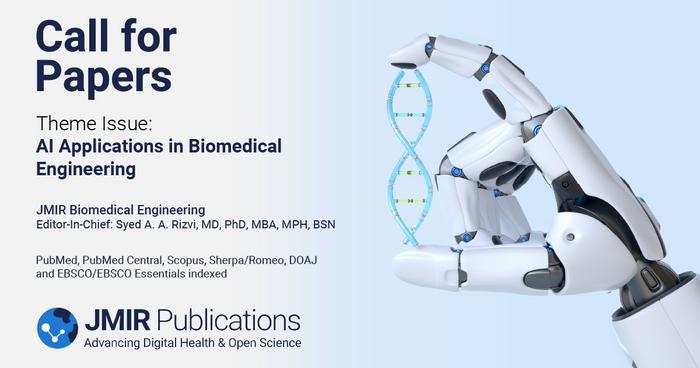Artificial Intelligence in Biomedical Engineering: A Revolutionary Frontier
In recent years, artificial intelligence (AI) has made significant strides, transforming various sectors, prominently the field of biomedical engineering. As a multidisciplinary domain at the intersection of medicine and technology, biomedical engineering is rapidly evolving, with innovative AI applications that enhance diagnostic processes, treatment methodologies, and overall patient care. The introduction of intelligent algorithms and machine learning techniques into biomedical practices presents exciting opportunities for improving healthcare outcomes and operational efficiencies.
The role of AI in biomedical engineering cannot be overstated. By harnessing vast amounts of data, researchers and clinicians can develop advanced diagnostic tools capable of identifying diseases and conditions at earlier stages than ever before. Machine learning models, trained on extensive datasets, can analyze patterns that human professionals might overlook, leading to more accurate diagnoses. Whether it’s interpreting complex imagery or evaluating genetic information, AI is revolutionizing the ways in which healthcare providers approach problem-solving and decision-making.
One noteworthy application of AI is in the realm of medical imaging technologies. Modern imaging techniques, such as MRI, CT scans, and ultrasound, generate immense volumes of data that require careful analysis. AI algorithms are adept at processing these images, improving phenomena such as image segmentation and synthesis. Consequently, these advancements not only elevate the accuracy of the readings but also significantly reduce the time required for radiologists and technicians to draw conclusions. This expedited analysis can lead to timely interventions, fundamentally changing patient prognoses.
Moreover, AI-driven tools are being utilized to enhance the design and development of medical devices. By employing sophisticated algorithms, engineers are equipped to optimize device functionality and performance. For instance, AI can facilitate the creation of smarter wearable devices that continuously monitor vital signs, sending alerts to healthcare professionals in real-time when anomalies are detected. The convergence of AI with device engineering not only fosters innovation but also ensures that the development process is tailored to meet the evolving needs of patients and providers alike.
AI is also at the forefront of personalized medicine, enabling tailored treatment plans based on individual patient profiles. With the integration of machine learning techniques, healthcare providers can analyze patient histories, genetic makeup, and lifestyle factors. This comprehensive approach allows for the prediction of treatment responses, fostering a paradigm shift where patients receive therapies that are more effective based on their unique characteristics. Personalized medicine is not just a theoretical ideal; it is becoming a practical reality thanks to AI’s capacity to handle multifaceted datasets in ways that were previously unimaginable.
The ethical implications surrounding AI in biomedical engineering also warrant attention. As reliance on AI systems increases, questions arise regarding data privacy, algorithmic bias, and accountability. Addressing these ethical considerations is crucial for fostering public trust and ensuring that technological advancements translate into equitable healthcare solutions. Continuous dialogue among engineers, clinicians, and policymakers will be essential in developing frameworks that govern the responsible use of AI technologies in clinical settings.
Research is flourishing in this area, with numerous studies investigating the multifaceted impact of AI across various aspects of healthcare. The ongoing exploration of these topics emphasizes the necessity for a collaborative approach among engineers, medical professionals, and AI specialists to maximize the benefits of technology in medicine. A multidisciplinary ethos is pragmatically essential to propagate understanding and navigate the intricate dynamics of AI’s application in healthcare environments.
In addition to diagnosis and treatment optimization, AI is instrumental in accelerating drug discovery processes. Pharmaceutical companies are leveraging machine learning models to identify potential compounds, predict interactions, and streamline clinical trials. By simulating interactions at a molecular level, researchers can focus resources on the most promising candidates while significantly reducing the time and cost associated with bringing new drugs to market. This revolution in drug development is poised to address some of healthcare’s most pressing challenges.
The potential integration of AI with neuroprosthetics is yet another avenue of exploration within biomedical engineering. Researchers are working towards creating intelligent prosthetic limbs that can respond to user intent through advanced neural interfaces. By interpreting brain signals and translating them into movement commands, these innovations may one day offer unparalleled levels of independence to individuals with mobility impairments, thereby redefining quality of life and personal agency.
As we forge ahead, continued advancements in AI must be met with vigilance regarding ethical, social, and practical implications. The future landscape of biomedical engineering is characterized by fusion and innovation, demanding that all stakeholders remain engaged and proactive in harnessing AI’s capabilities responsibly. This approach ensures that while we push the boundaries of technological advancements, we also advocate for solutions that prioritize human dignity, equity, and the overall betterment of society.
This new theme issue on “AI Applications in Biomedical Engineering” stands as a testament to the ongoing commitment to exploring and elevating these technological advancements. A collective scholarly effort will help illuminate areas of research that hold great promise, pushing the field towards impactful, real-world applications, and fostering an ecosystem where innovation in healthcare thrives.
As we look to the future, the integration of AI in healthcare and biomedical engineering is not merely a trend, but a transformative force reshaping the very foundations of medical practice and research.
Subject of Research: AI Applications in Biomedical Engineering
Article Title: Artificial Intelligence in Biomedical Engineering: A Revolutionary Frontier
News Publication Date: May 6, 2025
Web References: JMIR Biomedical Engineering
References: N/A
Image Credits: Credit: JMIR Publications
Keywords
Artificial Intelligence, Medical Imaging, Personalized Medicine, Drug Discovery, Ethical Implications of AI, Neuroprosthetics, Biomedical Engineering.
Tags: Advanced Diagnostic ToolsAI Applications in Treatment MethodologiesAI in Biomedical Engineeringdata-driven healthcare solutionsEarly Disease Detection TechnologiesEnhancing Diagnostic Processes with AIInnovations in Medical ImagingIntelligent Algorithms in Medicinemachine learning in healthcareMultidisciplinary Approaches in Biomedical EngineeringRole of AI in Patient Caretransforming healthcare with AI





